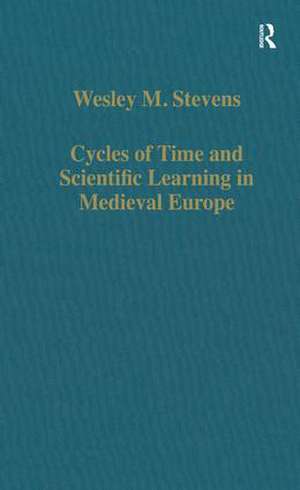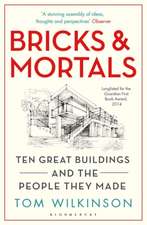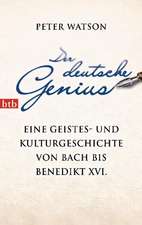Cycles of Time and Scientific Learning in Medieval Europe: Variorum Collected Studies
Autor Wesley M. Stevensen Limba Engleză Hardback – iun 1995
Din seria Variorum Collected Studies
-
 Preț: 343.34 lei
Preț: 343.34 lei -
 Preț: 325.31 lei
Preț: 325.31 lei -
 Preț: 311.41 lei
Preț: 311.41 lei -
 Preț: 311.18 lei
Preț: 311.18 lei -
 Preț: 406.12 lei
Preț: 406.12 lei - 9%
 Preț: 938.86 lei
Preț: 938.86 lei -
 Preț: 299.55 lei
Preț: 299.55 lei -
 Preț: 396.01 lei
Preț: 396.01 lei - 9%
 Preț: 1041.25 lei
Preț: 1041.25 lei -
 Preț: 258.67 lei
Preț: 258.67 lei -
 Preț: 325.68 lei
Preț: 325.68 lei - 9%
 Preț: 938.10 lei
Preț: 938.10 lei -
 Preț: 312.75 lei
Preț: 312.75 lei -
 Preț: 313.38 lei
Preț: 313.38 lei -
 Preț: 351.48 lei
Preț: 351.48 lei -
 Preț: 311.29 lei
Preț: 311.29 lei - 9%
 Preț: 937.14 lei
Preț: 937.14 lei -
 Preț: 351.42 lei
Preț: 351.42 lei -
 Preț: 320.00 lei
Preț: 320.00 lei - 34%
 Preț: 764.20 lei
Preț: 764.20 lei - 23%
 Preț: 315.48 lei
Preț: 315.48 lei - 36%
 Preț: 740.06 lei
Preț: 740.06 lei - 34%
 Preț: 764.20 lei
Preț: 764.20 lei - 34%
 Preț: 680.73 lei
Preț: 680.73 lei - 29%
 Preț: 247.40 lei
Preț: 247.40 lei - 34%
 Preț: 485.78 lei
Preț: 485.78 lei - 34%
 Preț: 769.51 lei
Preț: 769.51 lei - 38%
 Preț: 769.85 lei
Preț: 769.85 lei - 34%
 Preț: 826.68 lei
Preț: 826.68 lei - 25%
 Preț: 225.28 lei
Preț: 225.28 lei - 25%
 Preț: 225.54 lei
Preț: 225.54 lei - 38%
 Preț: 766.91 lei
Preț: 766.91 lei - 34%
 Preț: 736.38 lei
Preț: 736.38 lei - 34%
 Preț: 738.43 lei
Preț: 738.43 lei - 25%
 Preț: 226.52 lei
Preț: 226.52 lei - 33%
 Preț: 491.66 lei
Preț: 491.66 lei - 34%
 Preț: 485.78 lei
Preț: 485.78 lei - 34%
 Preț: 485.78 lei
Preț: 485.78 lei - 34%
 Preț: 767.07 lei
Preț: 767.07 lei - 34%
 Preț: 764.20 lei
Preț: 764.20 lei - 38%
 Preț: 766.34 lei
Preț: 766.34 lei - 36%
 Preț: 739.17 lei
Preț: 739.17 lei - 31%
 Preț: 473.94 lei
Preț: 473.94 lei - 18%
 Preț: 843.63 lei
Preț: 843.63 lei - 38%
 Preț: 774.91 lei
Preț: 774.91 lei - 38%
 Preț: 769.92 lei
Preț: 769.92 lei - 34%
 Preț: 764.20 lei
Preț: 764.20 lei - 50%
 Preț: 488.81 lei
Preț: 488.81 lei - 36%
 Preț: 488.49 lei
Preț: 488.49 lei - 34%
 Preț: 769.10 lei
Preț: 769.10 lei
Preț: 228.94 lei
Preț vechi: 301.68 lei
-24% Nou
Puncte Express: 343
Preț estimativ în valută:
43.81€ • 45.90$ • 36.21£
43.81€ • 45.90$ • 36.21£
Carte tipărită la comandă
Livrare economică 12-26 aprilie
Preluare comenzi: 021 569.72.76
Specificații
ISBN-13: 9780860784715
ISBN-10: 0860784711
Pagini: 336
Dimensiuni: 150 x 224 mm
Greutate: 0.78 kg
Ediția:1
Editura: Taylor & Francis
Colecția Routledge
Seria Variorum Collected Studies
Locul publicării:Oxford, United Kingdom
ISBN-10: 0860784711
Pagini: 336
Dimensiuni: 150 x 224 mm
Greutate: 0.78 kg
Ediția:1
Editura: Taylor & Francis
Colecția Routledge
Seria Variorum Collected Studies
Locul publicării:Oxford, United Kingdom
Cuprins
Contents: Cycles of time: Calendrical and astronomical reckonings in early science; Bede’s scientific achievement; The figure of the earth in Isidore’s De natura rerum; Scientific instruction in early insular schools; Sidereal time in Anglo-Saxon England; Fulda scribes at work. Bodleian Library manuscript Canonici miscellaneous 353; A ninth-century manuscript from Fulda: Canonici misc. 353, with three facsimiles; Introduction to Hrabani De computo liber; Compotistica et astronomica in the Fulda School; Walahfrid Strabo: a student at Fulda; Computus-Handschriften Walahfrid Strabos; Index.
Descriere
The calendar worked out by Bede remains essentially the one we still use today, yet the mathematical and scientific studies of the early medieval schools have been largely neglected in most discussions of the cultural and intellectual history of Latin Europe.











